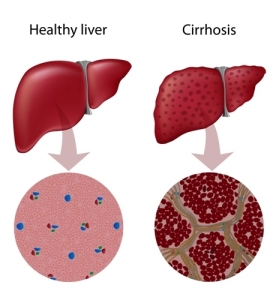Metabolic causes of delirium can come in form of any metabolic disorder, which changes the brain metabolism and can potentially tip the balance changing a normal functioning brain into a delirium.
Anoxia (= the lack of oxygen) can after 5 to 7 minutes lead to permanent damage to the brain cells. If there is one area of the brain where there is a narrowed artery, one segment of the brain has poor circulation meaning that there is a lack of oxygen and this can lead to a delirium.
Electrolyte imbalance such as hyperkalemia (too much potassium), hypokalemia (too little potassium), metabolic acidosis or hypercalcemia from hyperparathyroidism can lead to delirium.
With diabetes the same patient may inject too much insulin and get hypoglycemia, which can cause a delirium. However, the same patient may forget to take insulin a few days in a row and develop a ketoacidosis where high blood sugars and toxic organic ketoacids push the brain into a delirium. With thyroid disease there is also a situation where both hypothyroidism and hyperthyroidism will cause delirium.
Finally, in end stage liver cirrhosis the metabolism is severely deranged and ammonia does not get detoxified causing a delirium.
References
1. OL Lopez et al. Neurology 2000 Dec 55(12):1863-1869.
2. K Yasojima et al. Brain Res 2000 DEC 887(1):80-89.
3. A Kontush et al. FreeRadicBiol Med2001Jan30(1): 119-128.
4. H Vanderstichele et al. Amyloid 2000Dec7(4):245-258.
5. Neely et al. Lipids 2000 Nov35(11):1249-1257.
6. RA Yokel Neurotoxicology 2000 Oct21(5):813-828.
7. Petanceska et al. Exp Gerontol 2000 Dec 35 (9-10):1317-1325.
8. MB Liddell et al. Brit J Psychiatry 2001 Jan 178: 7-11.
9. Sramek et al.ExpertOpinInvestigDrugs2000Apr9(4):899-915.
10.K Kosaka et al. Neuropathology 2000 March 20(1): 1-7.
11.V Haroutunian et al.Arch Neurol 2000 Aug57(8):1145-1150.
12. C Puckett et al. Am J Hum Genet 1991Aug49(2):320-329.
13. M Haltia Ann Med 2000 Oct 32(7): 439-500.
14. Ferri: Ferri’s Clinical Advisor: Instant Diagnosis and Treatment, 2004 ed., Copyright © 2004 Mosby, Inc.
15. Rakel: Conn’s Current Therapy 2004, 56th ed., Copyright © 2004 Elsevier







